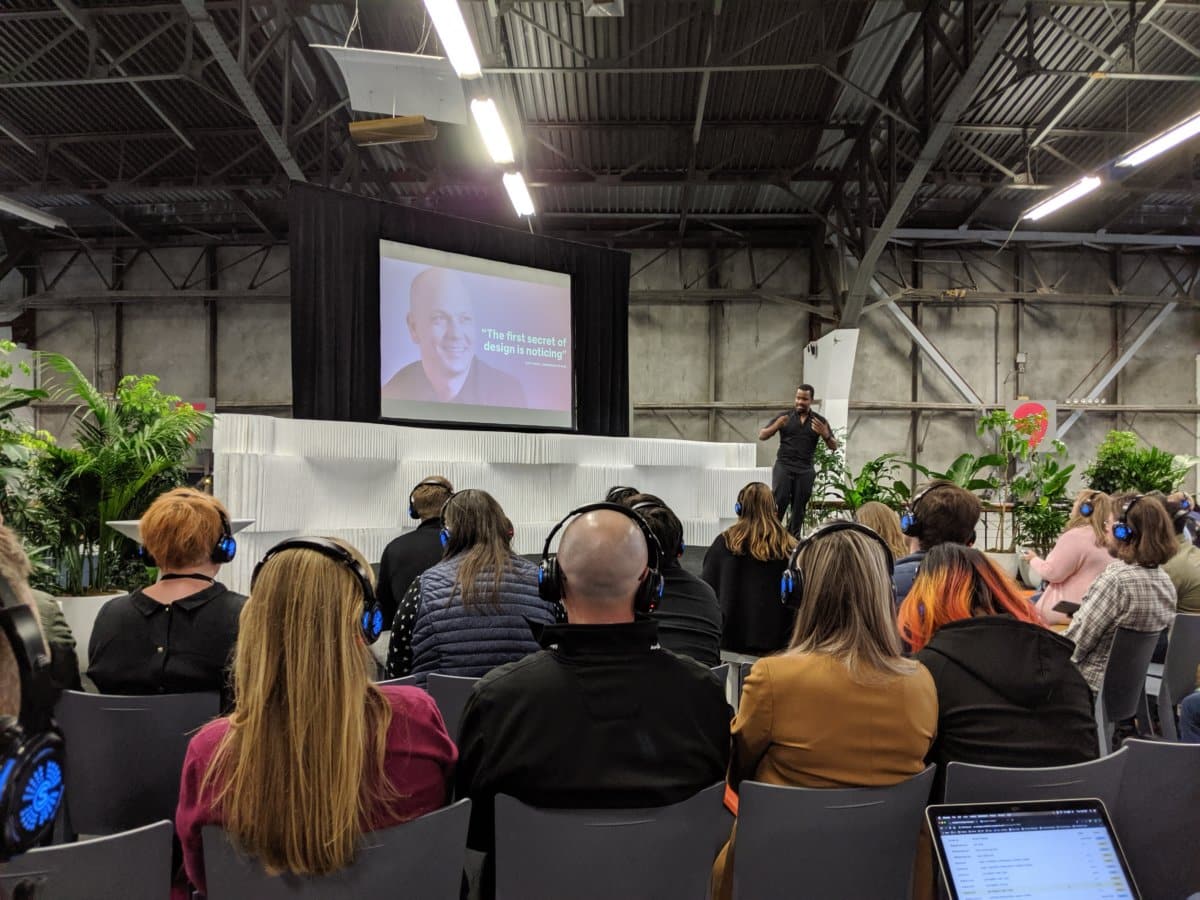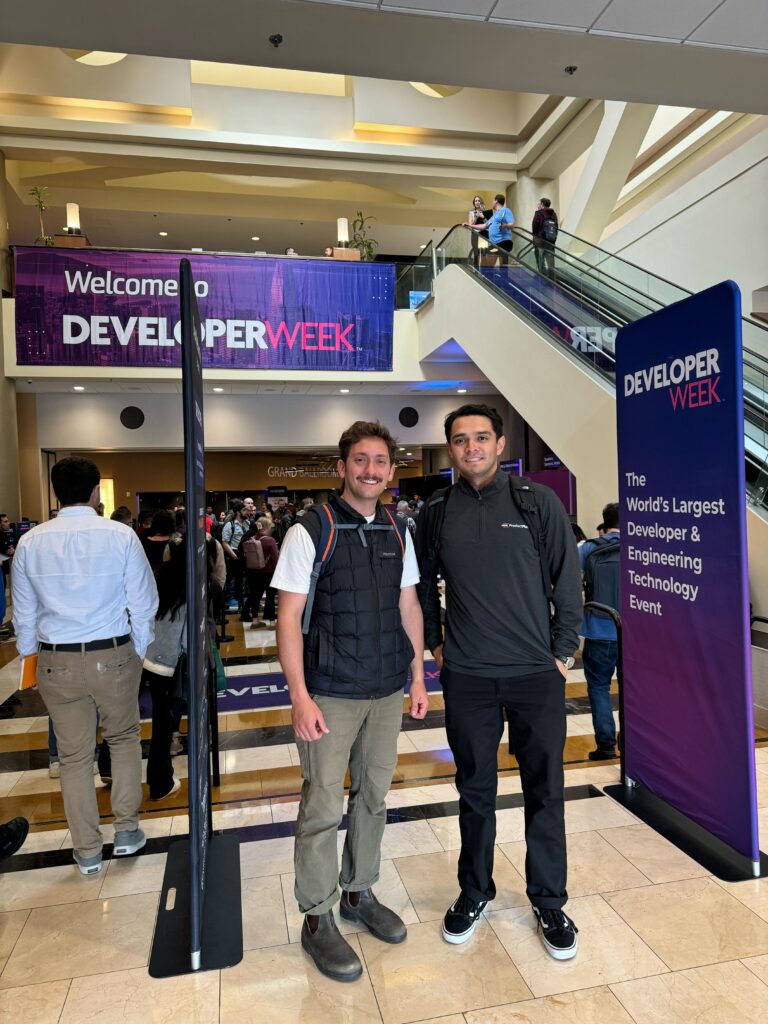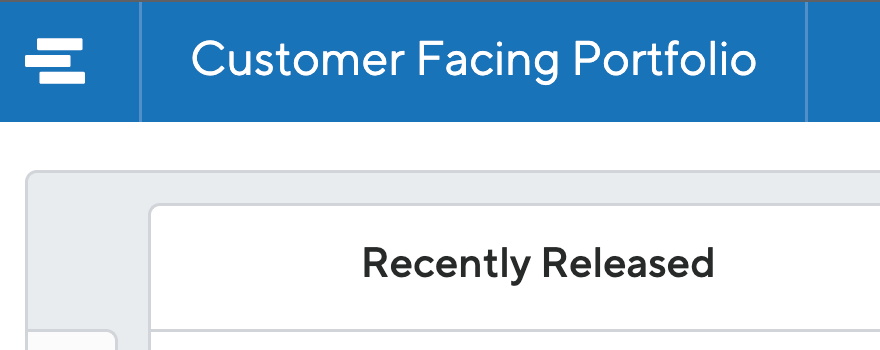Last week I had the pleasure of attending the ProductCraft conference, a one-day event for product managers in San Francisco. For those of you who are unfamiliar, ProductCraft is a community for product managers that is run by Pendo.
This being the first year of the ProductCraft event (and because I lead product marketing at a company in the product management space), I was especially curious. What would the attendance be like? Who would be sponsoring? What would be the hot topics under discussion?
On the whole, I thought the conference was great. Well done to Pendo and everyone else involved in pulling it off. Everyone I met with throughout the day seemed to share my sentiment—the event seemed to satiate (at least in part) product managers’ desire for education, encouragement, and community.
For everyone who couldn’t attend (and even for attendees who went to different sessions), I thought it might be helpful to give a quick summary of the key takeaways from the talks throughout the day.
Here’s what stood out to me:
1. Failure is your friend.
Guy Raz, host of How I Built This and the TED Radio Hour
In the opening talk of the day, Guz Raz shared seven lessons he’s learned from interviewing the world’s leading entrepreneurs. While his presentation was peppered with nuggets of product management wisdom (from Stuart Butterfield’s “always be ready to pivot” to James Dyson’s “listen to the doubters but never lose sight of the big picture”), the lesson that resonated with me most was an old classic: failure is your friend.
The phrase “failure is your friend” has taken many forms over the years, but it has always been a mantra of the tech community. Guy Raz presented it in a slightly different light. Instead of sharing how entrepreneurs can learn from their failures, he emphasized distancing yourself from your business failures, giving Joe Gebbia (the founder of Airbnb) as an example. When Joe and his co-founder first launched Airbnb, they struggled to generate interest and create a smooth experience for customers. Instead of giving up or letting their challenges bog them down, they tried to zoom back and view the challenges objectively. Doing so allowed them to improve the product and turn it into the global hospitality powerhouse it is today.
In business and in product, it’s easy to be discouraged by a failed product launch. Just remember to keep things in perspective. And sometimes zooming out and distancing yourself from the problem can make everything a little clearer.
2. Don’t be afraid to sleep around (with different frameworks).
Jen Dante, Head of Product for Payroll at Square
Product managers today have a plethora of frameworks and tools at their disposal. In her amazing talk, The Promiscuous PM, Jen Dante walked through a few of her favorite frameworks she picked up while working in Product at Google, Netflix, and Square. She advocated for product managers to not tie themselves down to one specific framework or toolset, but to assemble a collection of frameworks to use for different situations (to be a fox, not a hedgehog).
Rather than focus only on one of her examples, I’m going to lean into Jen’s advice and share as many of her tips as I can remember and let you do some further reading.
- Jobs to be done – Ask the question “what job is your product hired to do?”.
- Classical economics – The macroeconomic principles that drive our users and buyers.
- Behavior economics – The fun side of economics, such as price anchoring and status quo.
- The user is drunk – Try designing your app as though your users are drunk.
- The Kennedy principle – Ask not what your user can do for you, but what you can do for your users.
3. Check your biases.
Benjamin Evans, Inclusive Design Lead at Airbnb
In my favorite presentation of the day, Benjamin Evans began his talk by sharing his first experience as a customer of Airbnb. He was taking a trip to South Africa and he thought he would try out this new service called Airbnb. He found a host with a room available in a good neighborhood and booked his stay. After a long day of travel he arrived at his host’s house. And she told Benjamin that he couldn’t stay there because he was black.
Fast forward a few years and Benjamin now works at Airbnb, leading a team of designers responsible for making Airbnb for accessible for everyone. His team works on a tool set called “Another Lens”, which is essentially a collection of questions that help everyone at Airbnb (especially the product team) check their biases.
Here were a few great observations he shared:
- We naturally build problems for ourselves. It takes a concerted effort to see our products and world through a different worldview.
- Metrics-driven teams often design for averages (and it is a lense).
- Language localization was one of the biggest drivers of growth at Airbnb.
- Making Airbnb’s site ADA accessible improved the site in other areas (usability, search indexing, etc.).
4. Ask your customers the right questions.
Steve Sloan, Chief Product and Marketing Officer at Twilio SendGrid
Steve Sloan was a panelist on a great session moderated by Megan Quinn of Spark Capital called “At the Frontier of ‘Product Led.’” The panel shared a lot of great tips for product managers, but one quote from Steve stood out to me in particular:
Asking a customer “what do you want?” is like asking your significant other “where do you want to go for dinner tonight?” There are better questions we can ask.
When interviewing customers, you already know so much about them. You probably know their job title and their role. If you’ve done your homework, you know a little bit about their company and how they are using your product. Unless you don’t have the tools, chances are you have metrics on their product usage so far. So why throw all that insight you have and start from scratch with a question like “what do you want?” (which also puts the effort/onus on them).
This echoed that theme that many of the panelists brought up throughout the session: product managers are being held to a higher standard than ever before. Because product managers have so much more at their disposal (tools, data, insights, resources), a lot more is being asked of them. While asking a customer “what do you want?” might have worked in the past, it doesn’t cut it today. Similarly, presenting your justification for developing a new feature without doing your homework (customer interviews, user metrics, market info, etc.) doesn’t work anymore.
5. Spend your decision effort on the big decisions.
Justin Dilley, Head of Product at FullStory
In a collaborative, working-session style presentation, Justin Dilley gave an inside look into how product is structured at FullStory and the tools and processes they have used as the product team grows.
The main thrust of his talk was how to be more efficient with your decision-making process. Referencing Parkinson’s Law of Triviality (which essentially claims that members of an organization give disproportionate weight to trivial issues), he talked about how important it is as a product manager to spend your time and energy on the big decisions. For example, you can spend all day arguing about a button color in a group meeting while neglecting the fair more significant decision of which payment processor you choose for your application.
Justin shared two tactics that the product team uses that I thought were particularly interesting.
First off, they have a unique team structure that allows ~10% of their engineering force to work on what they call “valor” projects. These are the sharp edges, “pebble in your shoe” issues that might be low effort but can pile up if they go addressed. I liked the idea of committing to chipping away on these types of things every sprint.
Secondly, the teams at FullStory use a prioritization framework called 9-block. 9 block is essentially a visualized version of the value-vs-effort framework that makes it easy for the entire team to understand what is being prioritized and why.
6. Don’t be a “mini CEO.” Be a conductor.
Jeff Lash, Vice President and Group Director, Product Management at Sirius Decisions
In a fun, 45-minute conceit, Jeff Lash of Sirius Decisions walked a packed house through the idea that product managers should be conductors of an orchestra, as opposed to the popular concept of “mini CEO”.
One of Jeff’s observations that stood out to me was how product management has resisted the natural progression to specialize roles. While some companies might have Technical Product Managers or Growth Product Managers, a majority of companies just have product managers, and these product managers need to be generalists.
7. Get coffee from Wrecking Ball Coffee
Shaun Juncal, Senior Product Marketing Manager at ProductPlan
Next time you’re in the Cow Hollow neighborhood of San Francisco, get coffee at Wrecking Ball Coffee Roasters. It’s good.



